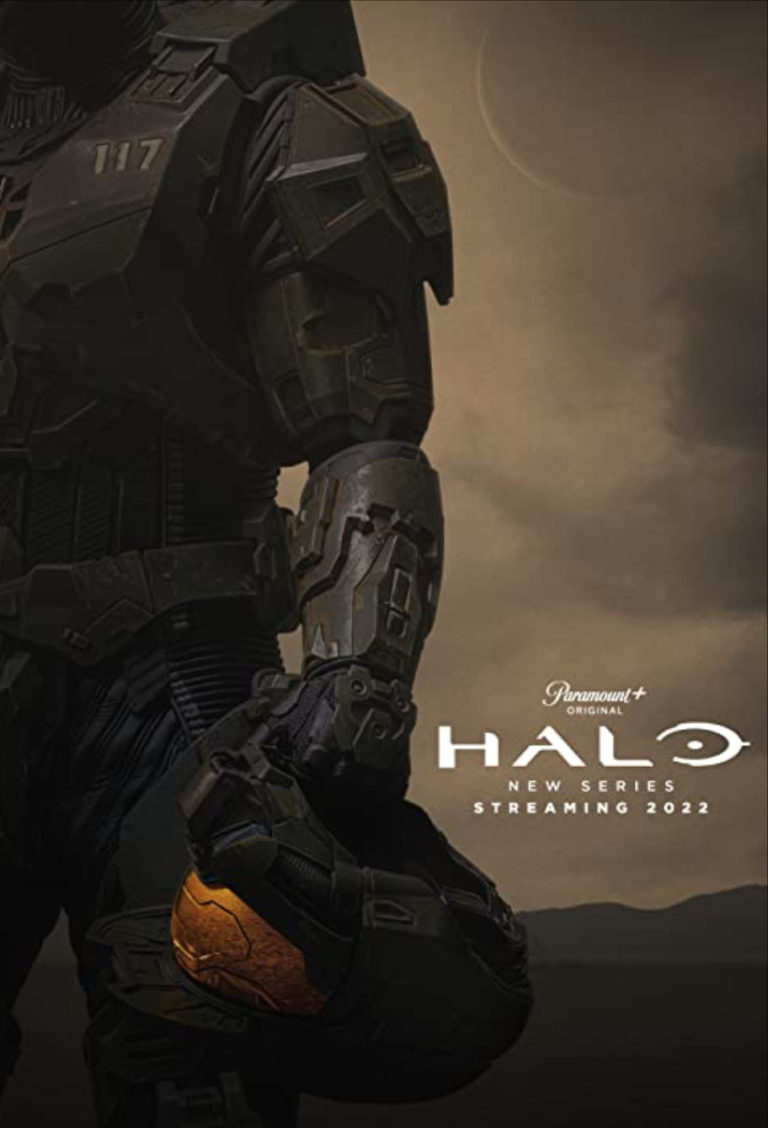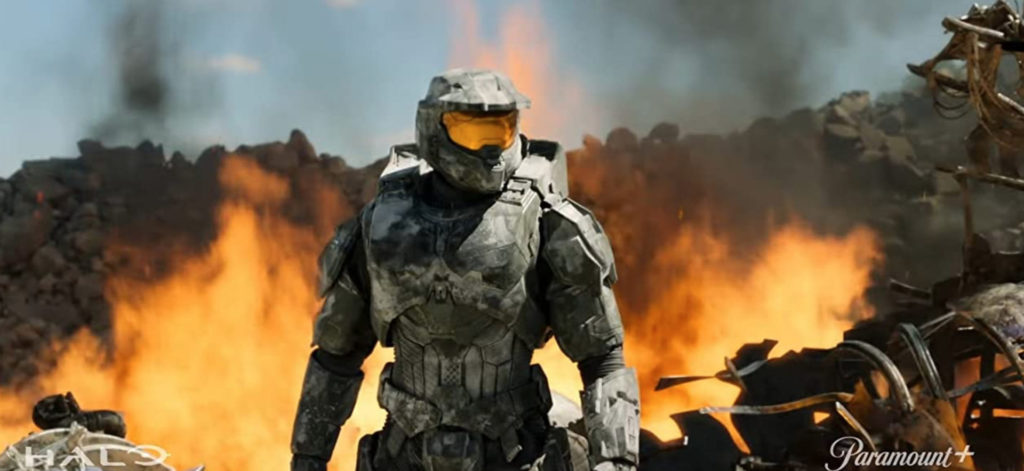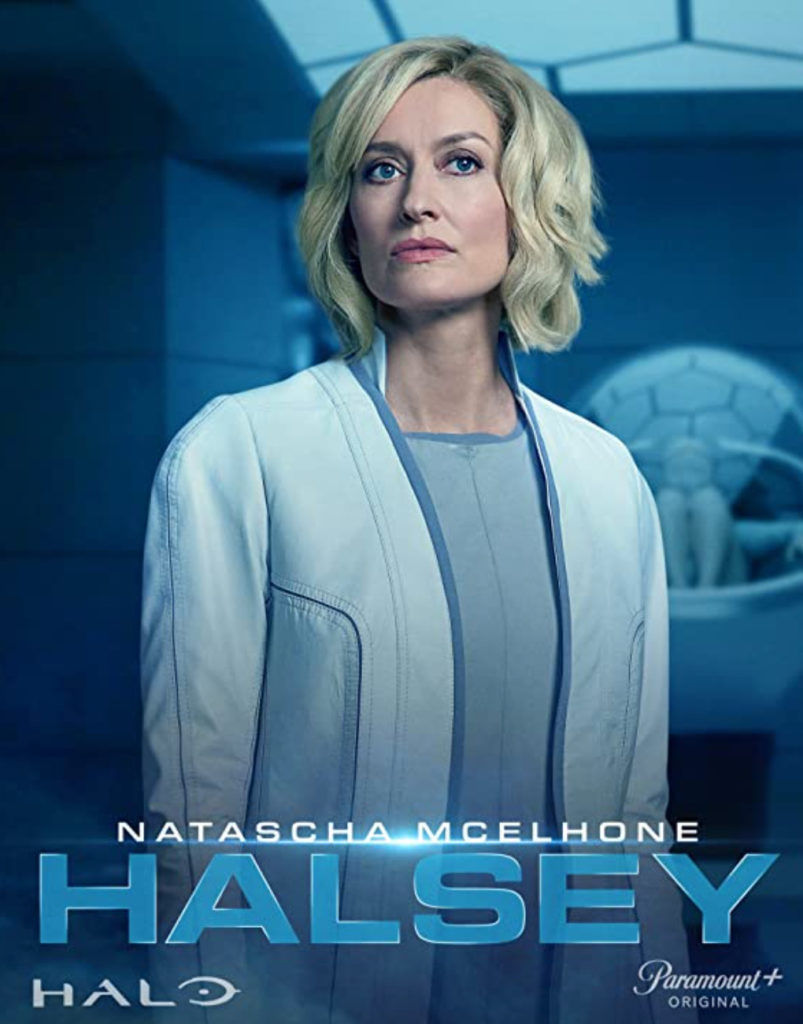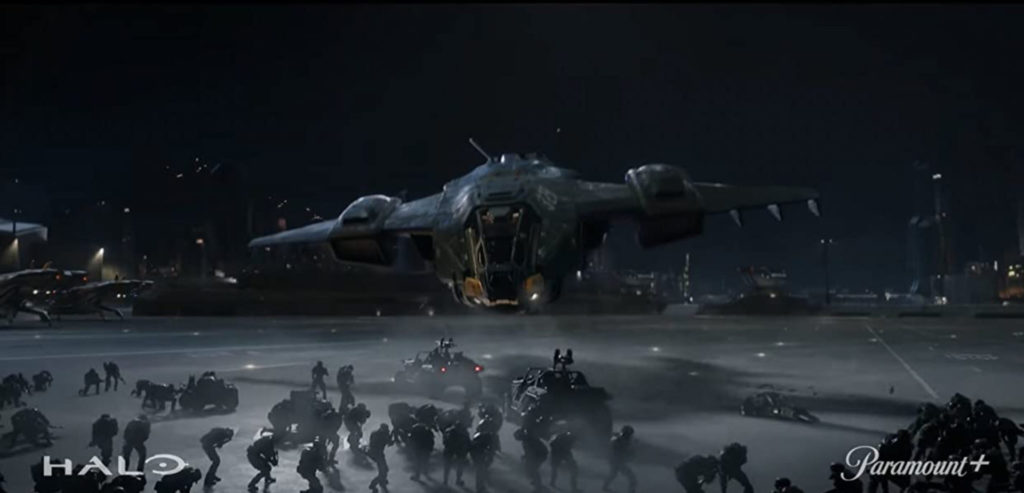
The stars of the new live-action series, Halo, said they tried to bring humanity and dimension to the Paramount+ adaptation of the blockbuster military-themed, sci-fi video-game franchise.
Set to debut on the streaming service Thursday and already renewed for Season 2, the show’s ensemble is led by Pablo Schreiber, Natascha McElhone, Yerin Ha, Jen Taylor and Bokeem Woodbine.
Cinema Daily US recently participated in round-table interviews with Schreiber, Ha and Taylor. Here is what they said.

Q : What inspired your interpretation of Master Chief/John-117?
PS: I looked at all the cinematics from every Halo game. The real lead driving force of that work is Steve Downes and the incredible voice work that he did in creating the character for the video-game format, but I also looked at a ton of outside media that has been created, specifically, a couple of the novels, the graphic novels. I looked at the animated shorts and the live-action films.
From the beginning – getting cast in this – and being exposed to all of this Halo mythology, what became evident immediately is just how deep and rich the universe is and how well-conceived and well thought it is. I absorbed as much content as I could that was Halo-related and then really surrendered myself to the vision of the writers and filmmakers who had a plan for what they wanted to do with the first season and just trying to as authentically and truthfully as I could interface with the circumstances that were given to me.
Q : What can you say about John’s complex friendship with Soren-066, played by Bokeem Woodbine?
PS: Bokeem is an amazing actor, a person who has a real sense of history and gravitas. From the moment that you meet him, you feel a lot of what he has been through and what he has lived and I think that kind of life experience is invaluable for screen performance.
The character he plays, Soren, is a really rich and vibrant character. He has a lot of interesting history from having left the Spartan program at an early age after his augmentation has gone wrong. Now he is this intergalactic space pirate who lives out on The Rubble and survives off of capturing (United Nations Space Command) ships and stealing their bounty.
He’s got a family, which for John – interacting with him after all of these years apart when he goes to The Rubble because it is the only place he has left to go – that feels particularly interesting and off-putting for John that Spartans could have children. I think he never entertained the idea that family was something that was possible and Soren really awakened John to the possibility of a human life in general. There are more possibilities than he had imagined, in part, not solely, but in concert with John having this experience by touching this artifact and then later he is going to make a decision to do something that is going to affect how he deals with and processes emotions. All of those things together are going to start the chain reaction of John discovering more and more about who he is as a human being outside of being a soldier.

Q : You’ve starred in a variety of other projects from Weeds to Orange is the New Black to American Gods. How was this role different from what you’ve done before?
P.S. From the moment you get told you have the opportunity to play Master Chief, I think the difference is readily self-evident right there. It’s just a massive opportunity to play someone so iconic and so beloved by so many for so long and also because of the nature of the character.
He is a bit of a symbol. He is a bit of a blank slate because he is a person from a first-person shooter video game, so he’s necessarily by design kept very undefined and we’re meant – as players of the video game – to fill in the undisclosed parts of his personality with our own. To get to play a character like that also felt like a huge opportunity because the parts of him that are unknown that we are meant to fill in with our own personalities as gamers we now get to fill in on the TV show in a new and interesting way and allow multiple generations who have grown up on this game to get to experience this universe that they have loved so long in a completely new and exciting way.
Q : How would you describe the dynamic between John and Kwan Ha, played by Yerin Ha?
PS: I feel so grateful to have gotten to work with Yerin and to continue to get to work with her in the second season. She is such a vibrant screen presence. They found her off of an audition tape in Australia and she was one of the real revelations of the show. Her face just comes alive on screen. You instantly empathize and feel exactly what she is going through and she is just one of those actors who communicates their feelings and emotions with incredible ease. She doesn’t have to do much to show you what she is going through. To get to work with someone as talented and facile as her so early in her career was really a treat. It’s her first major TV gig and I get to share it with her.
YH: Kwan’s sarcasm and honesty actually brings out this side of Master Chief we’ve never really seen. She’s just a real human being who is unapologetic for who she is and what she says. I think Master Chief also finds her very like: “Oh, she’s talking to me like this?” I don’t want anything from him. So, I think that’s why they also have this communication between the two.

Q : Do you think Kwan is the way into this world for viewers who aren’t familiar with the video games?
YH: Kwan is the new audience’s eye in. We see her in the beginning and we see that she is not happy on Madrigal and all she knows is this planet and what her dad has been fighting for is independence from the UNSC. Everything else, like seeing Master Chief for the first time, seeing the Covenant, everything. It’s all new and she’s also processing this information for the first time and I think the new audience will also kind of relate to her and be like: “OK, I’m not alone in this journey, this world.”
Jen, you’ve been voicing the artificial intelligence creation Cortana for a very long time. What was it like transferring this character from video games to television?
JT: Technically, it’s been a little easier than I expected it to be because I was doing motion-capture for the games and I’m still doing performance-capture for the TV show within a different medium, of course, so it’s slightly different. There are some different technical things. It is also a little scary for me.
Originally, I was just doing the voice and then to expand that to where I have to figure out how Cortana moves. I have to figure out how she gesticulates. That had never been something I had thought of before. Luckily, I was doing that in some of the past games, so this transition was a little easier. But that was intimidating when I had to do that and then this, yeah, there is a bigger, broader audience perhaps and that is intimidating. Luckily, I’ve got this background and I am pulling on this technically, but I have to say it is a little intimidating and exciting and thrilling and scary. All of those things.
Q : Did you change your approach at all knowing that actors would be responding to you rather than players of a game?
JT: I’m always thinking, in anything I do – whether it is TV or video games or stage work or I’m selling you a taco – of objective. I’m generally trying not to think about how it is coming across. I’m more thinking about how I can affect the person to get what I want. How can I affect Pablo to get what I want from him? How can I affect Kwan to get what I want from her? Not that we have any scenes together, sadly, but that is what I’m thinking about. What is my objective? What am I going after and what is getting in my way and what would it look like if I get everything I wanted?
Read more stories by Karen Butler.
Here’s the trailer of the series.

